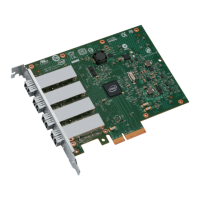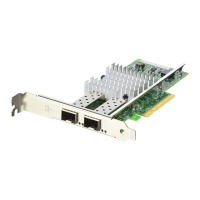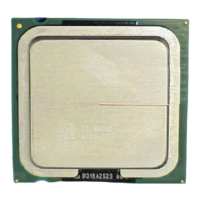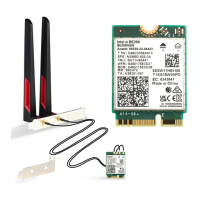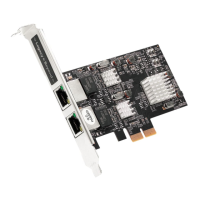646265-004 69
Intel
®
Ethernet Network Adapter E810-XXVDA4T
User Guide
Appendix A Notes
• If you cannot find the SMA or ptpX files, you should check that:
— You have the latest NVM.
— You have the latest driver.
— You ran make install.
— Your kernel support sysfs interface (https://www.kernel.org/doc/html/latest/driver-api/
pps.html). Otherwise, you should update your kernel to a newer one.
• It can take a couple of hours to synchronize the phase while the frequency is already locked. The
DPLL status shows unlocked until both the frequency and phase are synchronized.
• When doing measurement, users need to take into consideration together the cable length that is
connected the system, scope, and GM.
• Users also need to check equipment precision as some GMs can have >15 ns accuracy.
• If using newer Linux versions, use systemd, which has NTP and as a result sysclock based on NTP
when using phy2sys commands to turn it off/on.
# timedatectl set-ntp true(false)
$ timedatectl status
Local time: Thu 2015-07-09 18:21:33 CEST
Universal time: Thu 2015-07-09 16:21:33 UTC
RTC time: Thu 2015-07-09 16:21:33
Time zone: Europe/Amsterdam (CEST, +0200)
System clock synchronized: yes
NTP service: (in)active
RTC in local TZ: no
https://wiki.archlinux.org/index.php/systemd-timesyncd
• If users run into a “clock frequency higher than an expected” ptp4l error, they might be running
ptp4l as follower and leader on the wrong system.
• If ts2phc shows SKIPS, it is likely that the extts polarity is set wrong in the ts2phc config file.
• If ts2phc reports:
# ts2phc[4980.802]: enp138s0f0 ignoring invalid master time stamp
The problem is that the system time and the GNSS time is too far away and the system time needs
to be updated. Set initial system time via one-time update via NTP (using NIST server as an
example):
ntpd -g -q -x 132.163.97.5
• If tx_timestamp does not arrive within the specified time, linuxptp completely restarts
synchronization. Try increasing Tx_timestamping_timeout to a larger number, like 10 or 100, but
this depends entirely on hardware.
https://manpages.debian.org/unstable/linuxptp/ptp4l.8.en.html
• Linux kernels going to sleep, edit:
/etc/default/grub GRUB_CMDLINE_LINUX_DEFAULT="quiet splash nohz=off" "sudo update-
grub"
then restart.
Did this document help answer your questions?
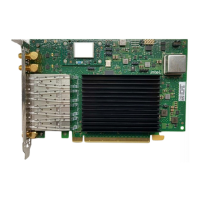
